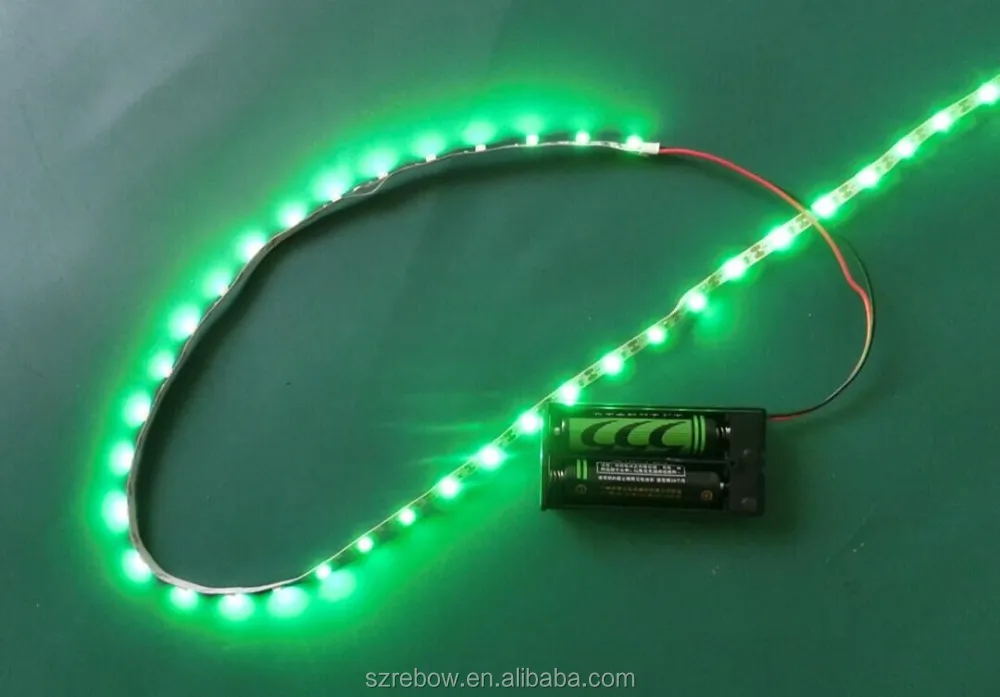Today’s topic is How To Test If A 9 Volt Battery Is Good. Obviously, you can find a great deal of 9V Battery Tester-related content online. The proliferation of online platforms has streamlined our access to information.
There is a connection between the How To Test A 9V Battery With A Multimeter and how to tell if a 9 volt battery is good by licking it information. additional searching needs to be done for Can You Lick A Battery To See If It Works, which will also be related to How To Check A Battery.

30 Interesting Facts How To Test If A 9 Volt Battery Is Good | How To Test A 9 Volt Battery With A Multimeter
- Test 3. Is it really good for my rocket? The shorting test. Only required if the battery is going to fire pyrotechnics. For altitude recording only, you can ignore this test if you passed test 2. - Source: Internet
- Energizer’s 9V Ultimate Lithium batteries are head-and-shoulders above the competition in performance terms. They store longer, run longer, and function at greater temperature extremes. They are undeniably expensive, but if you want a battery you can rely on in harsh conditions these are the ones to choose. At the other end of the scale are the Amazon Basics All-Purpose Alkaline, cheap 9V batteries that are more than adequate for dozens of everyday gadgets. - Source: Internet
- For a quick way to tell if there’s charge left in a 9 volt battery, briefly touch the contacts together with your tongue. If there’s juice in the battery you’ll get a tiny shock (and a nasty metallic taste). It’s not enough voltage to hurt you but it’s definitely not pleasant and you wouldn’t want to test a bunch of batteries this way. - Source: Internet
- If you’re familiar with Ohm’s Law, you know that voltage is a function of current and resistance (namely, V = IR). The important thing to remember is that everything is a conductor and can be modeled as a resistor. Things like wire and metal are obvious conductors and have a low resistance. Your body is also a conductor - just a poor one. - Source: Internet
- There are a number of variations in lithium battery chemistry, and it is an area of ongoing development. 9V batteries are often simply called lithium (Li), or maybe lithium-manganese dioxide (LiMnO2). Lithium 9V batteries are recommended for high-drain devices like medical or testing equipment where reliability and stability are of prime importance. Lithium 9V batteries are more expensive than alkaline and many types are not rechargeable. The exception is lithium-ion (Li-ion) 9V batteries, which are rechargeable. - Source: Internet
- I have seen multiple videos of how to test a microwave diode with a 9V battery using a multimeter. But, I don’t have a multimeter. However, I do have a 9V tester, which I think can be used. But, I want to make sure this is true before I think I have a good diode. - Source: Internet
- It is important to understand the focus of the PKCell 9V battery. It may be called ‘Extra Heavy Duty’ on the packaging, but it isn’t. It will not run power-intensive devices. What it will do is provide low power, for a long time, at very little cost. - Source: Internet
- Update: It appears that the drop test differences seen in the videos above may have more to do with the brand of battery than the batteries’ level of charge. Consider this test “probably bogus.” - Source: Internet
- A battery does not ‘hold’ or ‘store’ current. It is a chemical reservoir which releases current on demand. How much it can release depends on the rate the chemical reaction can take place. - Source: Internet
- If you watch the video, and you haven’t heard him say “blow your hand off”, you haven’t watched the video long enough. There are certain things about electricity that we don’t want to learn the hard way, so just make sure to stay with low voltage circuits while you are “burning and learning.” And invest in a high quality multimeter (it’s not just about precision and accuracy – it must have the HRC fuses – open the multimeter up!). Fluke is a revered name in the business, and recommended. - Source: Internet
- That’s about 1.3mA of current flowing between the battery’s terminals, which is a good deal more than the current flowing during the dry skin test (0.09mA). - Source: Internet
- So, in conclusion: This is a decent way to get AAA batteries in a pinch for a bit less than what they cost in the store, although I don’t use 9Vs for much, so situations where this is helpful are gonna be a bit rare. AAAs in a pack of 8 usually go for about $0.70 a battery, 9Vs for around $2 — so $0.33 per AAA. AAAA batteries are rare enough, and marked up enough, that if you have something that uses them this could be a worthwhile main source. - Source: Internet
- Second. Do this test for only 1 or 2 seconds. The life-time of a shorted 9 volt battery is only about 72 seconds! - Source: Internet
- While it might be safe to handle 9V batteries with our bare hands (that 100kΩ offers a good deal of protection from that small voltage), ~1mA directly through the heart is enough to cause ventricular fibrillation (the heart stops beating in a coordinated manner and cannot pump blood to the rest of the body). This requires electrodes being punctured into the body near the heart. In this case, even something like 9V can be lethal (remember: your internals have a LOT less resistance than your skin, some estimations as low as 300 Ω). - Source: Internet
- While it is impossible to know the exact resistance between two points on your body (blood, bone, muscle tissue, and skin all have different resistances), we can generally assume that dry skin has a resistance of 100kΩ. This will change based on perspiration, hair, etc. For the sake of an example, let’s take a 9V battery and touch both terminals to our skin. What happens? Not a lot. With some Ohm’s law
magicmath, we can calculate the approximate current flowing between the terminals: - Source: Internet - Even when two 9V batteries share the same chemistry, there can be differences in how long they can supply their power. The figure used is milliAmp hours (mAh), and it’s often compared to the amount of fuel in a car’s gas tank. For example, if one 9V battery is rated for 400 mAH, and another for 600 mAH then the latter will continue to deliver its charge when the former has run flat. Maximizing 9V battery mAh is important for devices that need to run unattended for long periods. - Source: Internet
- The Energizer Ultimate Lithium 9V battery is certainly expensive. It’s disposable, yet costs more than most rechargeable 9V batteries. On the other hand, the unrivaled durability means it’s the ideal choice for important, high-drain security apparatuses, smart home devices, or personal medical equipment. It is extremely reliable, and the extended run time makes it especially good for equipment that is awkward to reach, thus reducing how often batteries need changing. - Source: Internet
- This makes them an excellent choice for low-drain devices like smoke detectors, fire alarms, and other monitoring equipment that demand modest battery performance, but over as long of a time period as possible. While PKCell themselves don’t provide capacity figures, independent reviewers have rated them at between 400 and 500 mAh. That’s much better consistency than alkaline 9V batteries, and as good as some lithium models. - Source: Internet
- When I pulled the product apart and separately powered the internal modules from my bench supply everything worked. The total device drew 12mA at 9v DC. Then when reassembled and running from the 9v battery it was all haywire again. - Source: Internet
- lxskllr said: I’ve been mowing my lawn with a dead battery for about 6 years now. I push it out of the garage, and hook it up to a charger to get it going. Next week comes, and I hook it up again. A bit of a PITA, but it’s cheaper and more ecological than buying a new battery. Click to expand… - Source: Internet
- Kipkay over at Metacafe has posted videos showing how you can take apart a 9V battery and use the cells as AAAA or AAA batteries (he has a similar trick for 12V -> 1.5V button batteries. I have played with batteries a lot in my life and never knew this. There was some speculation on reddit that it was a hoax of some kind, so as a good sciencer (like a scientist, but we don’t get the lab coats) who really didn’t want to get started on the morning chores, I decided to try it myself with a new 9V I had sitting around. I learned a couple useful things. - Source: Internet
- As you have already noticed, the voltage from a discharged battery may still be high, what changed when it discharged was it’s ability to maintain that voltage when current was drawn from it. The real reason is that the chemicals within the battery have exhausted their ability to react quickly, but they can still react slowly. They can bring the voltage up to normal (or near normal) but not keep it there under load. - Source: Internet
- Drop each battery (with the flat, negative end down) from a couple of inches up. If the battery is charged, it should make a solid thud and most likely stay standing. If, however, the battery is dead, it will bounce and fall over immediately. - Source: Internet
- The meter should read around 9 volts. With any thing less than 8.5 volts, don’t bother going to Test 2 since the battery isn’t very good and should not be used in a critical application. - Source: Internet
- There are 3 tests that you can do using a Digital Multimeter (DM) (This is a meter that can be used as a volt meter, a current meter and a resistance meter.) to determine the suitability of an alkaline 9 volt battery for rocket electronics. This applies to 9 volt alkaline batteries only. - Source: Internet
- I wish I knew how many volts/amps that thing could hurl, but it was pretty strong. I got juiced @ 10 (It had a scale of 1-10 for the shock intensity) on my bicep once for about 3 seconds. I thought the damn muscle was gonna rip, and it felt cramped/hurt for about 10 minutes afterward. - Source: Internet
- I’ve seen lots of high internal resistance faults with lead acid batteries but never before with a 9v battery. They are normally good, or flat. I wonder if the special “5 year” type of battery has some weird internal chemical makeup? There was no sign of corrosion, leakage or bulging and it measured 8.94v on the multimeter. - Source: Internet
- By placing these two components in series with the positive power supply connection to the circuit, you will have a good imitation of the used battery effect. For more voltage drop, place two 1N4001 diodes in series instead of just one, and increase the resistance to 220 or even 470 ohms. Connect the voltage sag circuit to your transistor fuzz or booster circuit, and enjoy the warm sound of a depleted battery (imitation). - Source: Internet
- First. A word of caution. Never connect a multimeter to a battery if the ohms scaleis selected. It will at minimum blow the input fuse, or if your multimeter doesn’t have one, it can destroy the meter. - Source: Internet
- Set the DM to DC volts and if it’s not an autoranging meter, set the scale to 10 volts. Touch the probes across to the battery terminals. (Caution: Do not short the two terminals with one probe.) - Source: Internet
 Following are some suggestions for where to begin your search for data on The Science of Licking a 9V Battery:
You should try to find How To Test A 9V Battery With Your Tongue-related information from reputable places. Libraries, online resources, and even paid journalists all fall under this category.
- It's crucial to be aware of the various electronic media sources available when researching 9V Battery Tester, such as Google and YouTube. You may also get info about Can You Lick A Battery To See If It Works on social media sites like Facebook and Twitter.
Following are some suggestions for where to begin your search for data on The Science of Licking a 9V Battery:
You should try to find How To Test A 9V Battery With Your Tongue-related information from reputable places. Libraries, online resources, and even paid journalists all fall under this category.
- It's crucial to be aware of the various electronic media sources available when researching 9V Battery Tester, such as Google and YouTube. You may also get info about Can You Lick A Battery To See If It Works on social media sites like Facebook and Twitter.It’s crucial to read to examine the authenticity of each source in order to acquire the greatest information regarding 9V Batteries:The Quick And Easy Guide For Optimized Devices.
Video | How To Test If A 9 Volt Battery Is Good
You’ll learn more about Licking Batteries after watching the films included in this post, which come from a variety of different sources. Information on a wide range of topics can be easily accessed via the internet.
## Notable features of 9V Battery Tester include:- How To Test If A 9 Volt Battery Is Good
- How To Tell If A 9 Volt Battery Is Good
- How To Check If A 9 Volt Battery Is Good
- How To Tell If A 9 Volt Battery Is Good By Licking It
- How Do You Know If A 9 Volt Battery Is Good

With the abundance of how to test if a 9 volt battery is good-related resources available online, it’s easy to find what you’re looking for.
This is not how most people would expect to learn more about How To Check Rechargeable Battery Health, so be prepared for some shock value. It paves the way for a closer examination of the Battery Drop Test information’s actual substance and its potential applications.
 techniques for making 9 Volt Battery Tongue Death data visualizations that are both aesthetically pleasing and practically applicable. They can spread the word about What Happens If You Short A 9V Battery in professional and promotional settings. For this reason, we also include How To Test A 9 Volt Battery At Home-related pictures.
techniques for making 9 Volt Battery Tongue Death data visualizations that are both aesthetically pleasing and practically applicable. They can spread the word about What Happens If You Short A 9V Battery in professional and promotional settings. For this reason, we also include How To Test A 9 Volt Battery At Home-related pictures.
At last, this article sums up key points about how to test if a 9 volt battery is good. There is also a comparison of your 9v Battery Impedance knowledge to that of Testing a diode with a 9V battery tester, as well as a discussion on 9 Volt Battery Tongue Death and The Science of Licking a 9V Battery.